Atlas Performing Arts Center
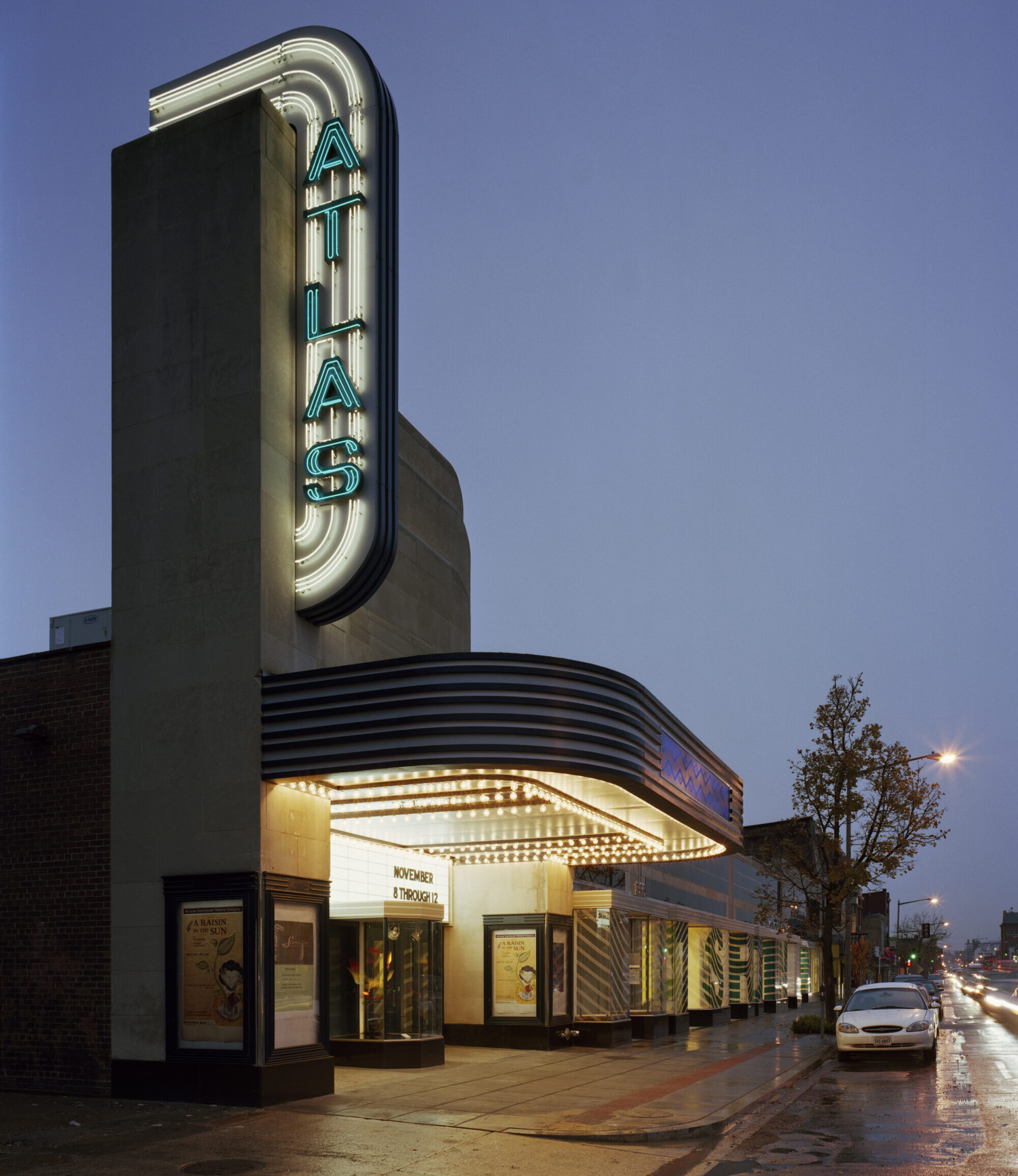
The Atlas Performing Arts Center is an historic and cultural anchor in the Near Northeast community of Washington, D.C. The Atlas fosters and presents exhilarating art in theatre, dance, music, vocal and choral work, spoken word, and more. It supports and partners with DC arts makers – its Arts Partners - including Capital City Symphony, Congressional Chorus and the American Youth Chorus, Mosaic Theater Company of DC, Joy of Motion Dance Center, and Step Afrika! The Atlas also leads in its arts education initiatives through its City at Peace youth development program and the Atlas’ Stagecraft Training and Apprenticeship Program. The Atlas also makes a difference through its community arts programs such as Mobilizing Our Community where close to 900 people created over 60 stellar mobiles and experienced the power of community, balance and connection. In the winter each year, it produces its popular Intersections Festival that hosts 400 artists and performing groups who entertain and engage 1000’s of patrons in a multi-week long festival. Its mission as a community focused arts organization is to bring people together through the arts to create, connect, and engage through innovative performances, events, and initiatives spanning a range of artistic expressions, traditions, and cultures. As the catalyst for neighborhood growth and change, the Atlas plays a major role in the regional creative economy and is where the arts, culture, and connection happen on H Street.
HISTORY
Originally built in 1938, the Atlas was one of four movie theaters in the H Street Northeast corridor. After the riots of 1968, the Atlas, a community icon, ultimately saw its demise and became a dark and silent reminder of the once vibrant H Street. In 2001, Jane Lang, a philanthropist and lawyer, began discussing the renovation of the Atlas with its neighbors to determine the best possible use for the space. The group decided that the theater and several storefronts would become a community-based performing arts venue that would serve the blighted community. Spurred by Lang’s vision, the Washington, DC government adopted a plan in 2003 to rebuild the corridor and identified the Atlas as a cornerstone of revitalization. The Atlas fully re-opened in 2006 as a 59,000 square foot performing arts center with four performance spaces, dance studios, offices, back-of-house facilities and an expansive lobby with a café. The Atlas is on the National Register of Historic Places and was the proud recipient of the 2012 Mayor’s Arts Award for Excellence in Service to the Arts.
Concerts in Motion
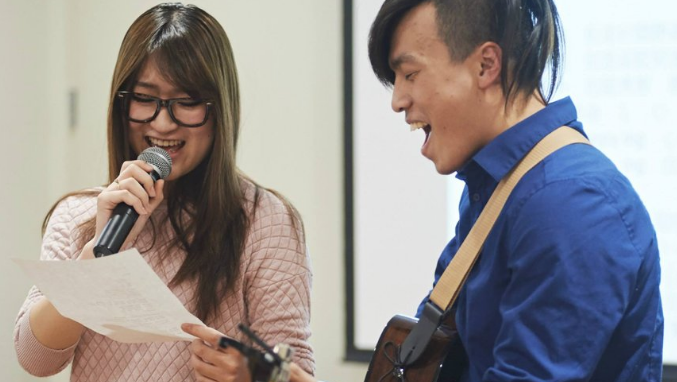
The Eugene M. Lang Foundation provides funding for Concerts in Motion’s intergenerational programs. Concerts in Motion is a New York City-based 501(c)(3) not-for-profit that brings personalized, high-quality live music and engagement to thousands of people every year. Audience members include older adults, caregivers, veterans, individuals with disabilities, individuals with mental illness, individuals experiencing housing and food insecurity, and hospitalized patients of all ages. Concerts in Motion's professional and student musicians reach people where they are, virtually and in-person, with meaningful music and conversation.
Concerts in Motion’s Intergenerational Programming is designed to positively impact young people and older adults and to connect people across ages, cultures and backgrounds. Concerts in Motion offers a variety of opportunities for students ages 6-18 from schools throughout New York City to serve communities in need with their unique skills and talents. Through youth concert participation, shared creative expression in Open Mics, leadership training and community outreach, students touch the hearts and minds of some of New York City’s most isolated residents.
YVote
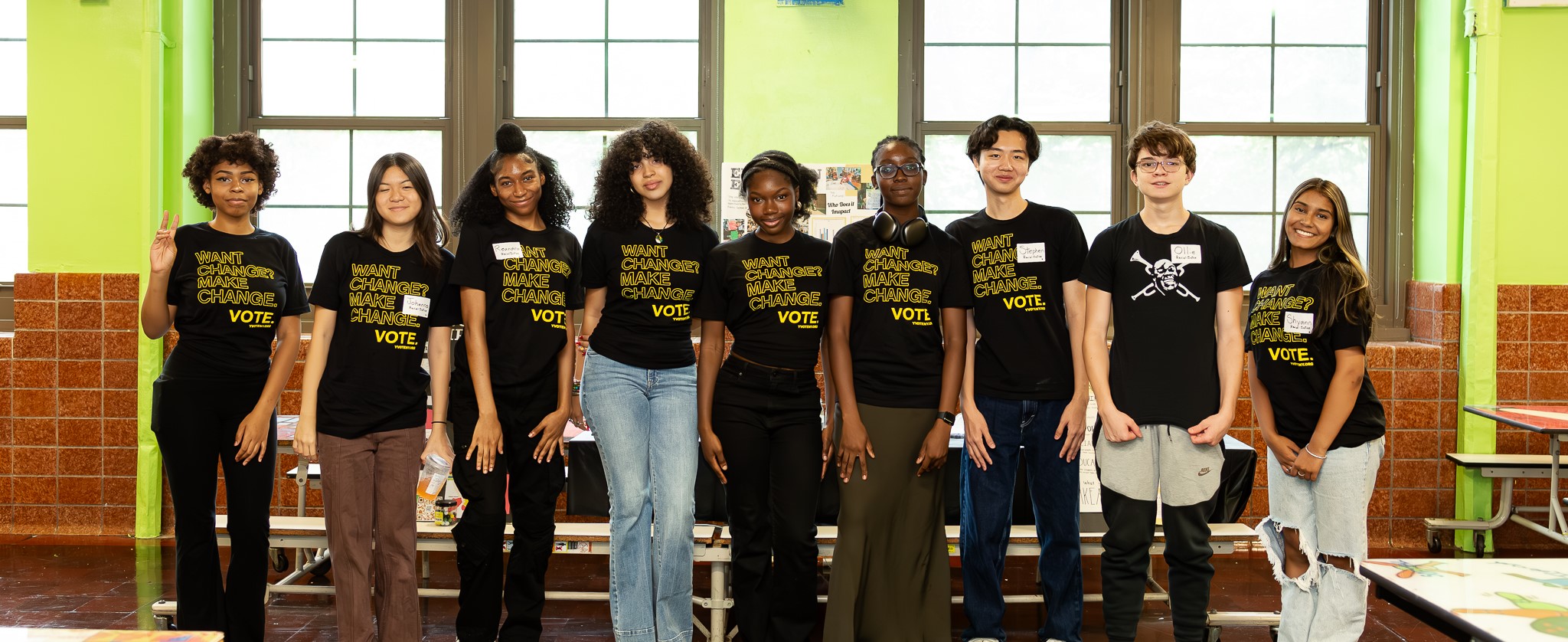
YVote is a New York City-based nonprofit that supports youth civic learning and leadership to drive a more productive, inclusive, and informed political culture. It was co-founded in 2017 by young people from dozens of NYC public high schools to address what they saw as one of the biggest barriers to youth involvement in electoral politics and civic spaces—a lack of knowledge and commitment as to “why vote?” and a need to put the “Y” (youth) into voting. While 76% of young people across the country believe their age group has the power to enact change, only 40% of all youth—and only 34% of youth of color—report feeling well-qualified to participate in politics. YVote is working to address this gap to ensure young people—especially those who have been historically disenfranchised—become informed and engaged civic leaders.
YVote engages hundreds of high school students across New York City’s five boroughs and other teens across the country in their free and stipended summer and school-year programs: Monthly Civic Forums, Year Round YVote Change Makers & Summer Change Makers Institute, Democracy Camp, and the NYC Youth Policy Agenda Their work is further amplified through youth media production, including a twice-weekly for-GenZ, by-GenZ blog, The Round Table weekly podcast, and Social Media Creator Corps creating daily social media posts to raise peers’ understanding of political and civic issues. By helping high schoolers connect their passions and beliefs with ways to build power, YVote creates a motivational runway for youth to make change, at and beyond the ballot box.
Lang Arts Scholars Program at Exploring the Arts
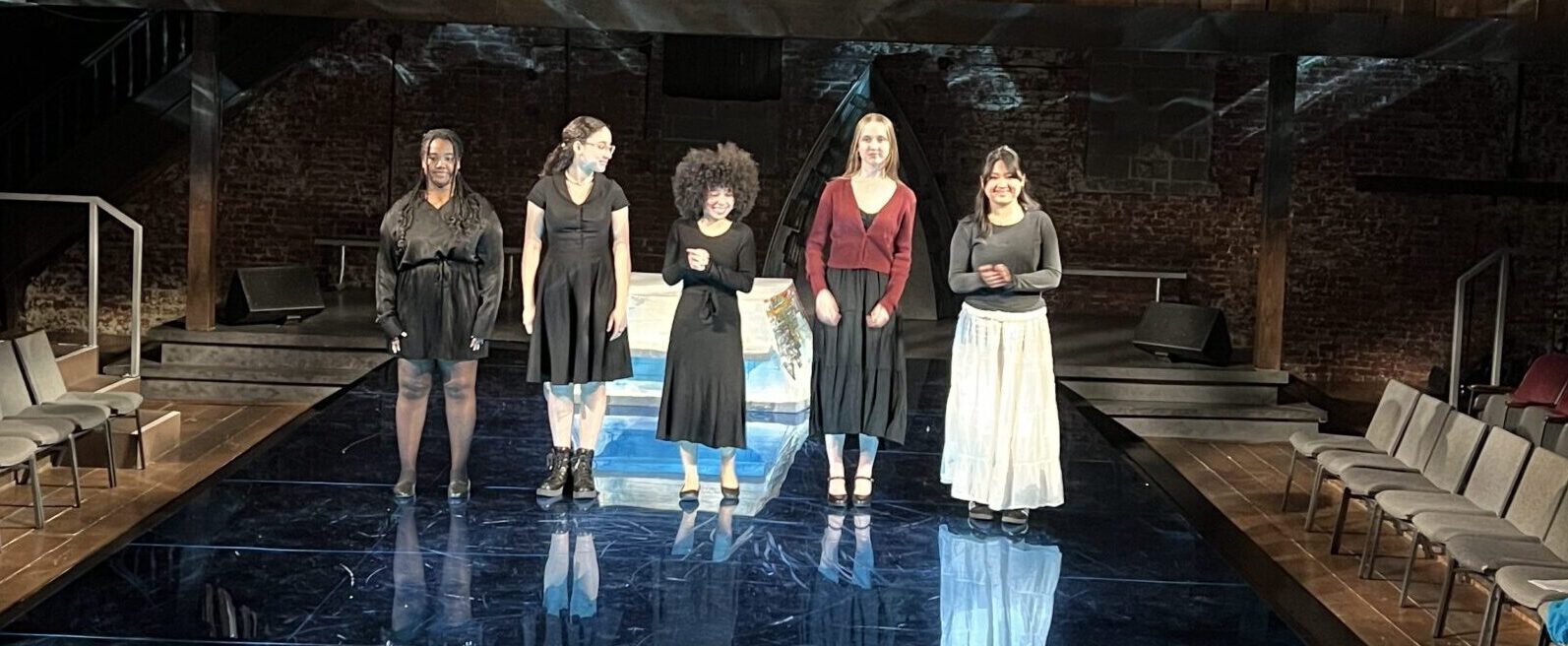
Exploring the Arts (ETA) is a nonprofit founded in 1999 by legendary American singer and painter Tony Bennett and his wife Susan Benedetto, a former public school teacher, with a mission to transform the lives of young people through arts education. ETA currently serves a roster of 56 Partner Schools throughout New York and Los Angeles - all public high schools, a majority holding Title I designation.
The Lang Arts Scholars program welcomes a cohort of 15 students each year from our New York City network of ETA Partner Schools to participate in free, after-school training in one artistic discipline (instrumental or vocal music, dance, and theatre), coupled with Saturday sessions meeting once a month for college prep and career readiness support. Students apply in 9th grade and make a three-year commitment to the program 10th-12th grade. There are two summer programs that are part of Lang Arts Scholars: after 10th grade, an arts intensive at NYU Tisch, and after 11th grade, a paid mentorship program where students can work with an audition coach or an arts industry professional to build on their skills.
Previous and current partners for ETA's Lang Arts Scholars include The Paul Taylor School, Mark Morris Dance Group, Martha Graham Dance Company for dance, Third Street Music School, Greenwich House Music School for music (instrumental and vocal), and Classic Stage Company, Broadway Bound Kids, and The Barrow Group for theatre.
Lang Youth Medical Program at New-York Presbyterian Hospital
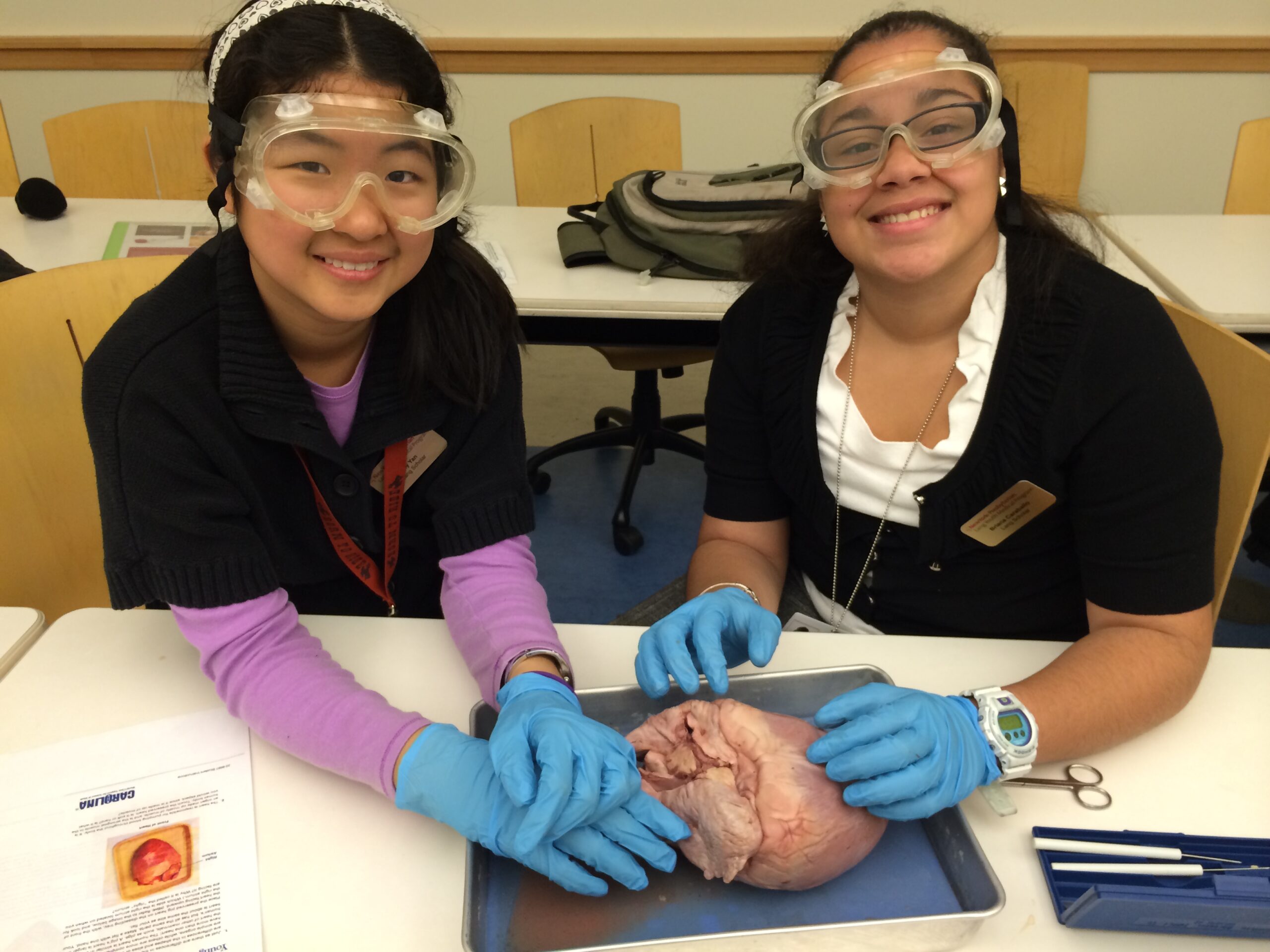
Spurred by Mr. Lang’s robust campaign to motivate young students to strive early to get into college and also by his Foundation's generous funding, NewYork-Presbyterian Hospital broadened its commitment to health education and to its community in 2003 by launching a college prep program. The Lang Youth Medical Program is a six-year longitudinal program serving 85-90 seventh-through-twelfth-grade students from New York City School District Six, located in the Hospital’s neighborhood of Washington Heights/Inwood.
The Program is managed by education specialists hired by the Hospital, who are assisted by staff and students of NewYork-Presbyterian/Columbia University Medical Center. It provides mentoring and 300 structured hours of curriculum-based programming annually, rigorously promotes a culture of peer support, requires parental involvement, and provides summer internships and other incentives for achievement. The Program helps each Lang Scholar gain admittance to a top New York City high school and then to a four-year college. Its goals are to cultivate and nurture an interest in science and healthcare; instill a sense of personal commitment to community service; help close gaps in quality education; form intelligent, community-minded, engaged citizens; contribute to the healthcare profession pipeline; and interrupt the cycle of inter-generational poverty.
There are currently 61 program alumni who are attending or have graduated from college, including Barnard, Columbia, Cornell, New York University, and the SUNY and CUNY schools. Additionally, two alumni are now working at NewYork-Presbyterian, one as a Patient Navigator in the Adult Emergency Department and one as a Neonatal Intensive Care Unit Nurse.
Lang Science Program at the American Museum of Natural History
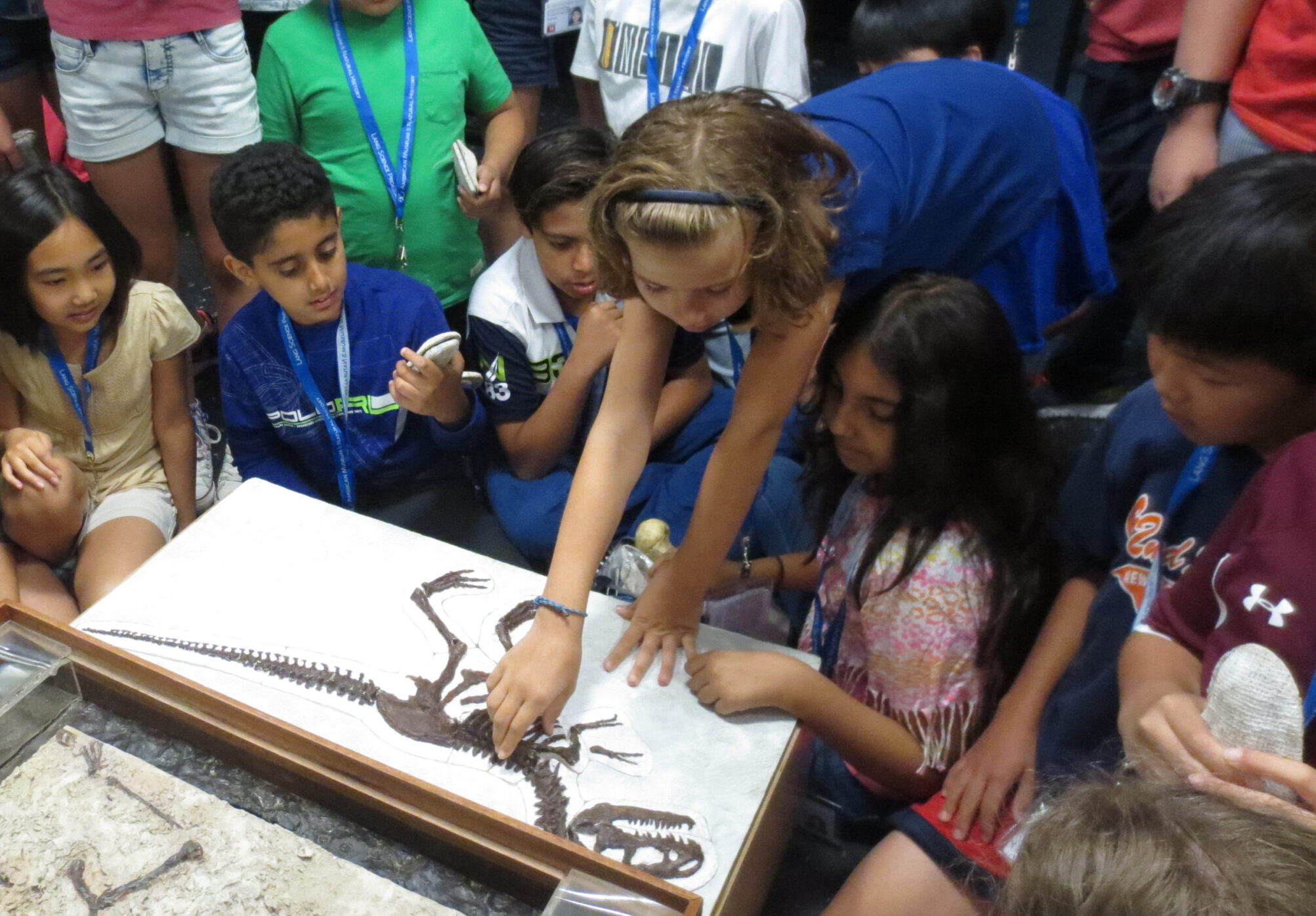
The Lang Science Program at the American Museum of Natural History (AMNH) is a six-year sequence of science learning experiences and college and career readiness supports for high-potential students, at least half of them from low-income families. About 23 rising 6th graders are selected to participate each year through a competitive process, and more than 75 percent remain in the program for the full six years. Through this long-term commitment, from grades 7 through 12, Lang Scholars become Museum insiders, developing their interests and identities as science learners, and cultivating 21st century critical thinking, problem solving, and collaboration skills. Every year, a combined total of roughly 140 students from all seven grades go behind the scenes in Museum collections and labs, interact with scientists, and complete courses in biology, anthropology, and the physical sciences. Beginning in grade 8, students work in teams to design and implement their own research projects and present their findings in the annual Lang Student Research Showcase. Lang Scholars and their parents also participate in workshops on applying to college and financial aid, SAT preparation, and career and job skills.
Since 2006, over 200 Lang Scholars students have completed the program. Graduates have gone on to college, including at Princeton, Columbia, and Cornell Universities, and some are now in graduate school. Nearly three quarters of respondents to a recent alumni survey selected STEM (science, technology, engineering, and mathematics) as the area of study that most closely matches their aspirations—an indication of the program’s impact on participants’ educational choices and career trajectories.
Eugene M. Lang Center For Civic and Social Responsibility at Swarthmore College
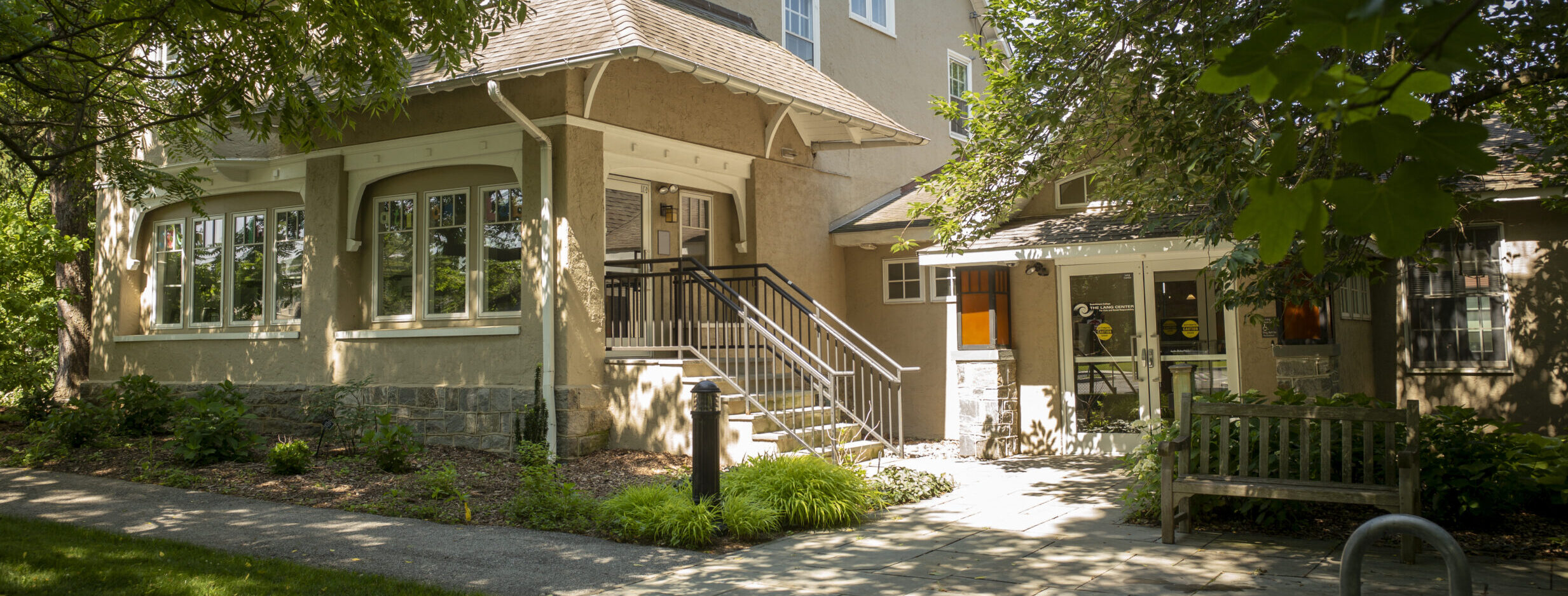
The Eugene M. Lang Center for Civic and Social Responsibility was established to inspire and provide vision, leadership and support toward fulfilling an essential dimension of the liberal arts mission of Swarthmore College: to prepare and motivate students to understand and engage issues of civic and social concern and, as active citizens of the US and other countries, to set their own paths toward shaping a more just and compassionate world.
Signature programs of the Lang Center include the Lang Visiting Professorship, which brings a renowned scholar for a period of residency, teaching, and community interaction, and also the Lang Opportunity Scholarship Program. As its central feature, the Lang Opportunity Scholarship Program offers each competitively selected Scholar the opportunity and related funding to conceive, design and carry out an Opportunity Project that creates a needed social resource and/or effects a significant social change or improved condition of a community in the United States or abroad.
Project Pericles
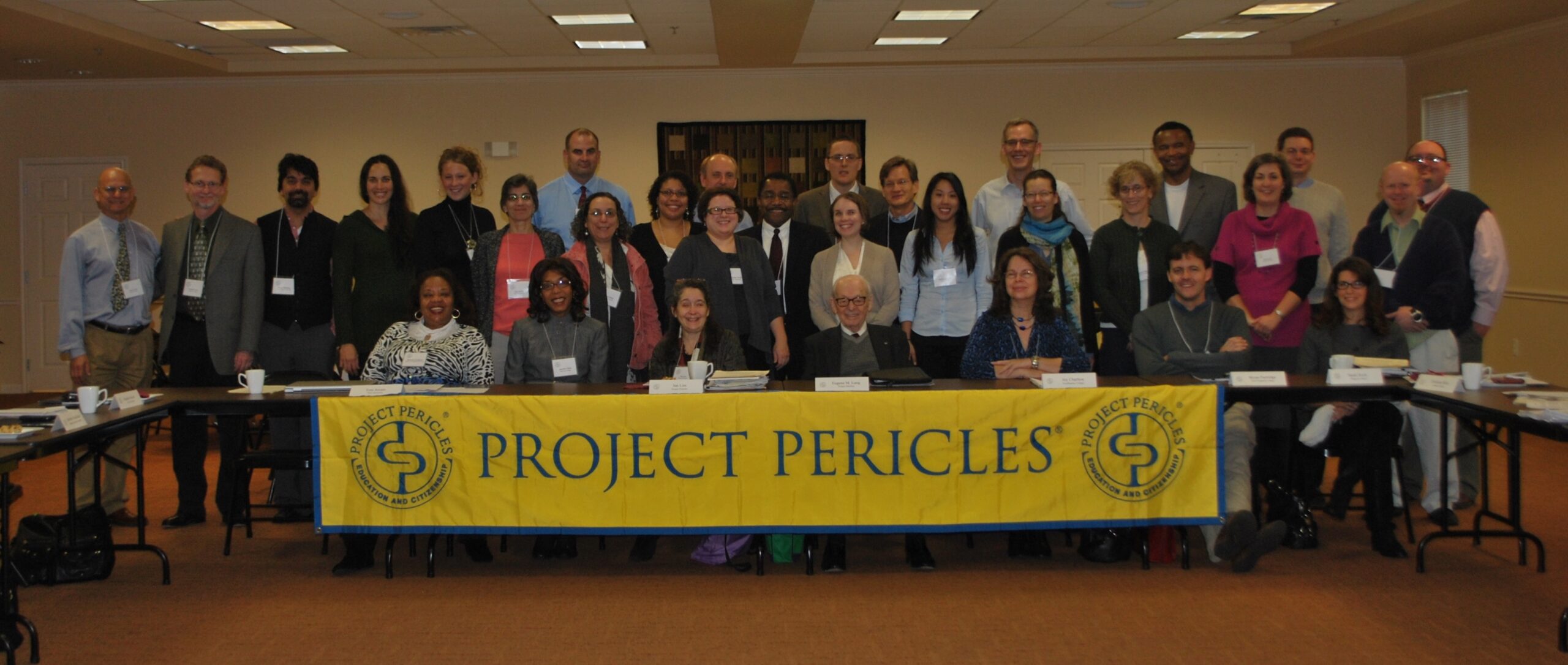
Building on the legacy and innovative vision of Eugene M. Lang, Project Pericles is a vibrant consortium of 30 colleges and universities (“Pericleans”) across the country that promotes participatory citizenship and social responsibility as essential elements of the undergraduate experience. Its goal is to help students build the habits, skills, and knowledge that will enable them to lead lives of active citizenship addressing the many social and economic problems facing their communities, states, and nations.
Founded in 2001 by Eugene Lang, Project Pericles is celebrating its 15th anniversary. Its model is unique and involves work in the classroom, on the campus, and in the community. Project Pericles engages at all levels of the campus, collaborating with presidents, provosts, faculty, staff, students, alumni, and community members. It engages students on Periclean campuses – directly through Periclean programs and indirectly by helping to foster a campus culture that thoroughly integrates civic engagement and social responsibility, most importantly, in the curriculum. Its projects and programs include: Creating Cohesive Paths to Civic Engagement, Debating for Democracy (D4D), the Periclean Faculty Leadership (PFL) Program, and Student Choices - Student Voices (SCSV).
Eugene M. Lang Junior Faculty Fellowship Program at Baruch College
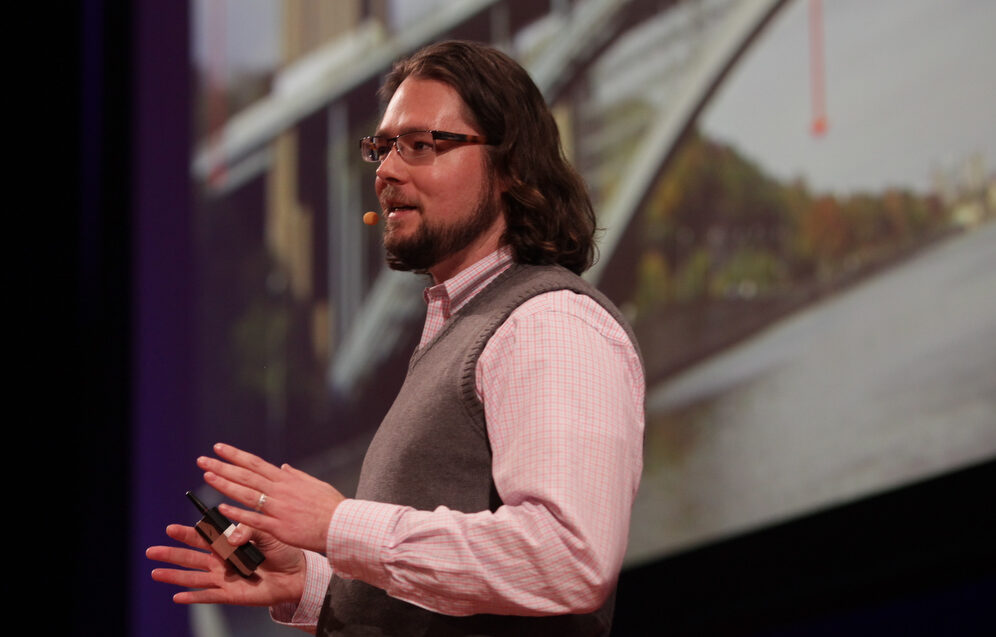
Since 1998, Baruch College has been the recipient of a grant from the Eugene M. Lang Foundation. The grant supported research fellowships for Baruch’s Junior Faculty. The successes of the program led to ongoing generous support from The Eugene M. Lang Foundation beginning in 2008.
Mr. Lang created the Junior Faculty Research Fellowship Program as an investment in faculty who are at early career stages, face challenges obtaining external support, and realize the importance of completed and published research to achieve tenure and promotion. Since 2008, there have been 54 Fellowship recipients from across all disciplines. Awardees attest to the positive difference that the Fellowships have made in the quality and scope of their research. Many have expanded their projects into federally supported grants which continue to advance the field and provide research experiences for undergraduates.
Eugene Lang College
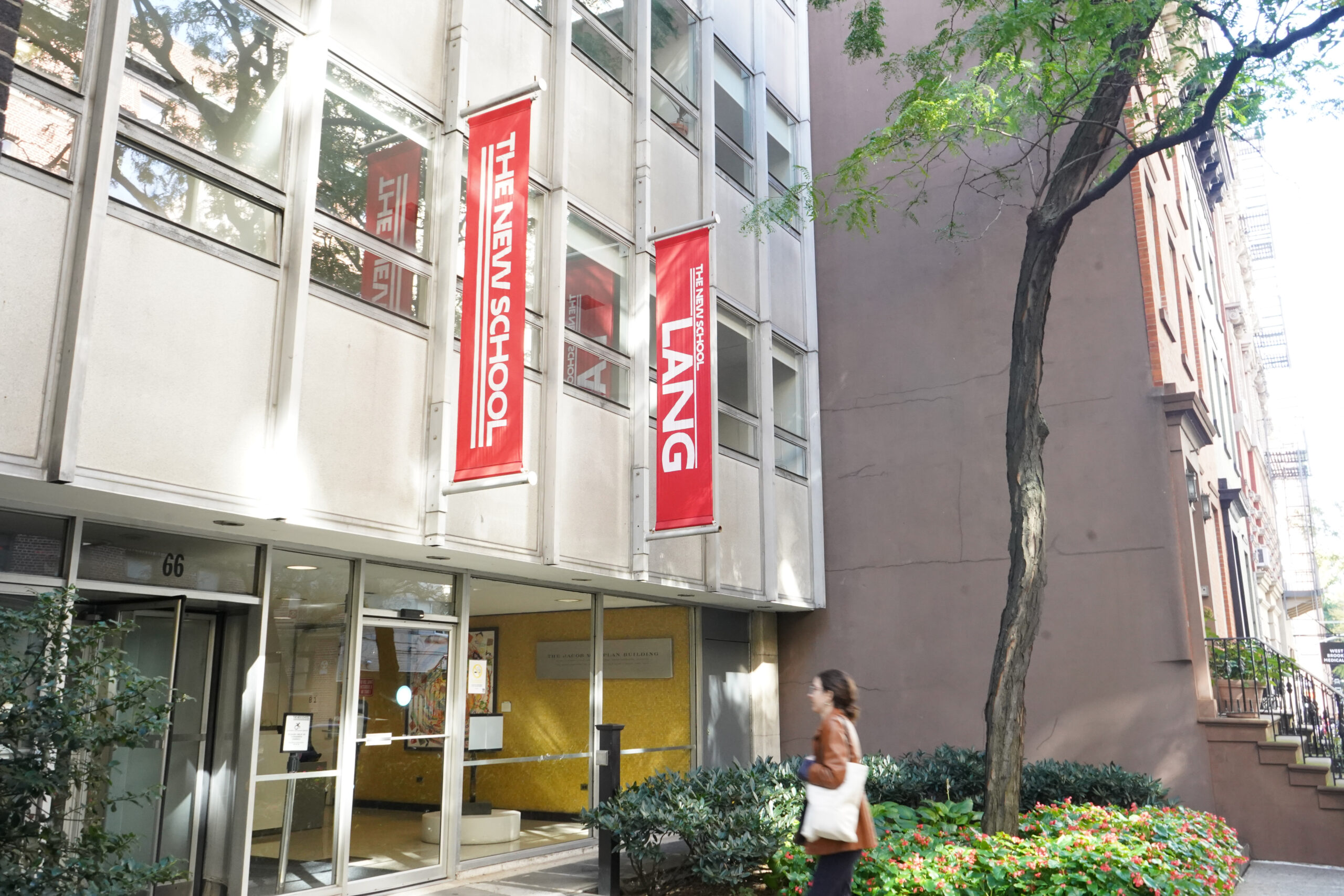
REDEFINING 21ST CENTURY LIBERAL ARTS EDUCATION
Thirty years ago, the entrepreneur and visionary philanthropist Eugene M. Lang established a liberal arts college at The New School, a university loved by Mr. Lang and known around the world for its progressive ideals.
In the early years, an entering class at Eugene Lang College was 50 students, and total enrollment hovered at 200 students. This year’s entering class of 350 freshmen and 70 transfers saw the largest applicant pool in Lang’s history. It now enrolls 1,500 students.
Its mission, however, has remained unchanged from the charge given by Mr. Lang in 1985: a rigorous liberal arts curriculum that taps the vitality of New York City, taught by excellent, dedicated faculty who are leaders in their fields, for students who are mentored intellectually and supported financially.
Engaged learning of the kind Mr. Lang envisioned is now widely understood as fundamental to student growth, but at many institutions engagement remains at the periphery of the academic core. This is not true at Lang, where academic rigor and engagement are deeply intertwined. It believes both are essential to excellence.
